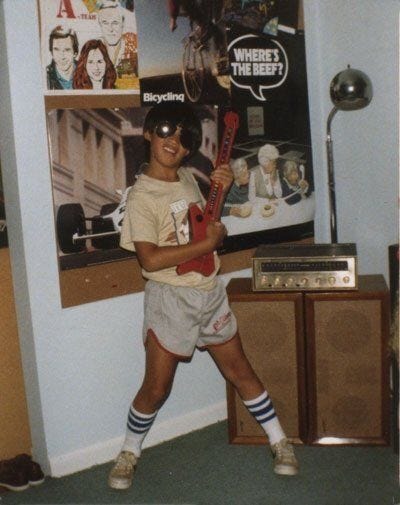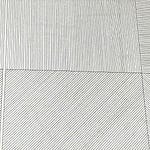I was first called a “chink” when I was in 1st grade.
I didn’t know what it meant. I’m not sure the kid that called me that knew what it meant either. But he was taught the word, and taught what the physical attributes were to associate that word to a person. I felt confused.
That moment (brief as it was) became the first entry in what would become a lifelong catalog of moments when I was reminded that to some, I would always be seen as different.
The Small Cuts
I was called a “foreigner” by an opponent on a soccer field when I was in 4th grade. I was not defined by my play on the field, but by the color of my hair and the shape of my eyes. I felt ashamed.
My parents had signed me up for soccer because I told them all the kids at recess were playing.
But that wasn’t true.
It wasn’t all the kids. It was all the kids I wanted to be friends with.
I wore the same uniform as everyone else. I practiced the same drills. I high-fived my teammates after good plays. But one word from an opponent: “foreigner” and suddenly, I was an outsider again.
That night, I remember looking in the mirror, still wearing my uniform, pulling at the corners of my eyes, wondering if there was a way to make them look “less Asian.” I was nine years old.
Fast forward to high school: I was asked, “Do you speak English?” by a US border patrol officer when I was coming home from a school trip to Canada. While my classmates looked forward to going home, I wondered whether my country wanted me to call it “home.” I felt displaced.
I remember the heat rising in my face as I replied in perfect English that yes, I was an American citizen. My friends looked uncomfortable. The border patrol agent barely acknowledged my response, waving us through. It was a small moment to him. To me, it was another reminder that my Americanness would always be questioned.
The Present Tense of Otherness
These aren’t just childhood memories. They’re ongoing experiences.
Just last week, I was told by a customer service rep that my last name was not filled out. “All I see is ‘N-G’ listed.” This IS my name. I felt misunderstood.
When I politely explained that my two-letter surname is indeed my complete last name, I got that familiar look: a mixture of embarrassment and disbelief. I’ve seen it countless times. It’s the look that says, “That can’t be right,” while simultaneously saying, “I don’t want to appear culturally insensitive.”
There’s a special kind of exhaustion that comes with these encounters.
It’s death by a thousand papercuts.
Each one is minor. “Why make such a big deal about it?” people sometimes ask. But they accumulate. They build up. They form a constant background radiation of not-quite-belonging.
The Space Between Cultures
Growing up Asian-American means living in the hyphen. You're never quite Asian enough for your older relatives who immigrated here. And visually, you're never quite American enough for some of your caucasian neighbors. What truly is the look of an ”American” these days anyway? Statistically it’s becoming more like people who look like me.
Over the years, I've walked a tightrope between embracing and rejecting Asian stereotypes. It's a dance every Asian American knows too well.
One day at work, I had my PR firm change the phrase "chink in the armor" in a press release. The phrase was technically correct. It had nothing to do with ethnicity. But I had such a visceral reaction to seeing that word on paper. I couldn't let it stand. That single word took me right back to first grade, to that confusion and hurt.
But also, in the 90s, I leaned hard into stereotypes when I created a satire website featuring my alter-ego, Chelvis: the Chinese Elvis. I donned a sequined jumpsuit and pompadour while singing “Shake, Rattle, and Egg Roll” and “Yellow Hawaii”. People laughed. I wanted them to laugh. I laughed too. It felt powerful to own the stereotype AND demonstrate how in real life, I am nothing like them.
The difference between these two examples? Agency. It was my choice to play with those stereotypes, to reclaim them, to control the narrative. When others wield stereotypes against us, they're weapons. When we choose to engage with them, they can become tools for connection, humor, even healing.
Finding Pride in the Hyphen
This month of May is Asian American and Pacific Islander Heritage Month. Here’s what I have come to realize: the hyphen in “Asian-American” isn’t a gap to be bridged. It’s not a barrier between two identities. It’s a space of possibility.
I am not half of two things. I am wholly something unique.
The turning point came when I stopped seeing my difference as something to overcome and started seeing it as something to embrace. My perspective, shaped by straddling cultures, is valuable. My experience navigating between worlds has given me insights that others might not have.
When I look at my family history, I see resilience. I see courage. That same blood runs in my veins.
My name: Ng, may be short, but it carries generations of story. It’s not incomplete. It’s perfectly whole, just as I am.














Share this post